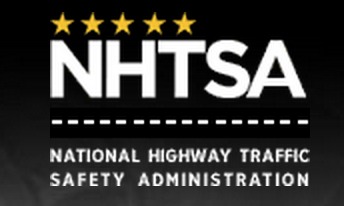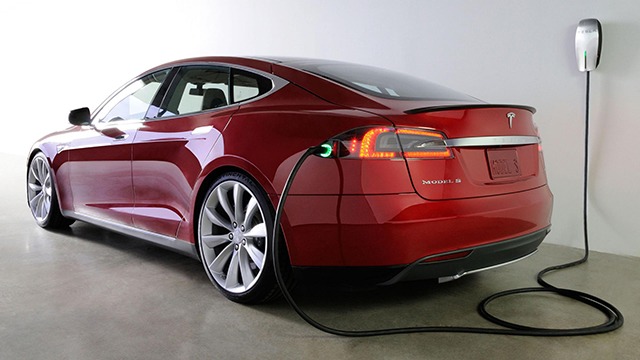Search the Community
Showing results for tags 'Bill'.
-
The U.S. Congress is voting on a new highway bill that if passed, would bring some much needed money and changes for the National Highway Traffic Safety Administration (NHTSA). Automotive News reports the new bill, called Fixing America’s Surface Transportation (FAST) Act would be the first long-term highway plan in a decade. If passed, the bill would provide roughly $300 billion for roads, bridges, and mass-transit projects. The bill would also increase NHTSA's budget for defect investigations from $10 million a year to $30 million. But for NHTSA to get the increase in the budget, they would need to implement a number of reforms outlined by Transportation Department’s inspector general. Along with the increase in the defect investigation budget, FAST would some much-needed changes in how recalls and defects are dealt with. The maximum fine for safety violations will increase from $35 million to $105 million Employees who report on potentially dangerous safety violations will be rewarded If there is a financial penalty put on an automaker or supplier, a whistleblower could get up to 30 percent of the penalty Automakers will need to keep safety data for 10 years (up from the current 5) and provide part numbers for defective parts to NHTSA Dealers will be required to notify customers of an open recall Rental car companies will not be allowed to rent out vehicles that have an open recall States would be given funds to notify owners who renew their vehicle registration that a recall is due Currently, the bill has bipartisan support and the White House announced that President Obama would sign the bill if passed. Source: Automotive News (Subscription Required) View full article
-

New U.S. Highway Bill Brings Much Needed Money To NHTSA
William Maley posted an article in Automotive Industry
The U.S. Congress is voting on a new highway bill that if passed, would bring some much needed money and changes for the National Highway Traffic Safety Administration (NHTSA). Automotive News reports the new bill, called Fixing America’s Surface Transportation (FAST) Act would be the first long-term highway plan in a decade. If passed, the bill would provide roughly $300 billion for roads, bridges, and mass-transit projects. The bill would also increase NHTSA's budget for defect investigations from $10 million a year to $30 million. But for NHTSA to get the increase in the budget, they would need to implement a number of reforms outlined by Transportation Department’s inspector general. Along with the increase in the defect investigation budget, FAST would some much-needed changes in how recalls and defects are dealt with. The maximum fine for safety violations will increase from $35 million to $105 million Employees who report on potentially dangerous safety violations will be rewarded If there is a financial penalty put on an automaker or supplier, a whistleblower could get up to 30 percent of the penalty Automakers will need to keep safety data for 10 years (up from the current 5) and provide part numbers for defective parts to NHTSA Dealers will be required to notify customers of an open recall Rental car companies will not be allowed to rent out vehicles that have an open recall States would be given funds to notify owners who renew their vehicle registration that a recall is due Currently, the bill has bipartisan support and the White House announced that President Obama would sign the bill if passed. Source: Automotive News (Subscription Required)- 9 comments
-
The latest state to ban direct sales of vehicles is Michigan. Today, Governor Rick Synder signed a bill into law that would ban such automakers as Tesla from directly selling vehicles to consumers. This bill also allows dealers to make the decision whether or not to charge the transaction fee. "This bill does not, as some have claimed, prevent auto manufacturers from selling automobiles directly to consumers at realign in Michigan. That is because this is already prohibited under Michigan law. The current law states that a manufacturer shall not "ell new motor vehicle directly to a retail customer other than through its franchised dealers…" the Governor wrote in a letter to legislators. The bill updates a current Michigan law by removing the word 'its'. This elimination causes Tesla and any other OEM who decides to do direct sales in the state not to be able to do it. Instead they would have to sell through a network of franchised dealers. Supporters of this bill includes the Michigan Automobile Dealers Association and General Motors. "We believe that House Bill 5606 will help ensure that all automotive manufacturers follow the same rules to operate in the State of Michigan; therefore, we encourage Governor Snyder to sign it," GM said in a statement. Tesla on their part isn't happy with this law and blasted GM for its support of the law. "What's good for GM's customers is not necessarily good for Tesla's customers. What's good for gasoline cars is not necessarily good for electric cars. Tesla is selling a new product with a new technology,” the automaker said in a statement. “The evidence is overwhelming that a traditional dealer-based approach does not work for electric cars. Moreover, GM distorts the purpose of the franchise laws (including in Michigan), which are in place not to cement a monopoly for franchised dealers but rather to prevent companies with existing franchises from unfairly competing against them. Tesla has never used franchised dealers, so these concerns are simply irrelevant." Source: The Detroit News William Maley is a staff writer for Cheers & Gears. He can be reached at [email protected] or you can follow him on twitter at @realmudmonster.
-
The latest state to ban direct sales of vehicles is Michigan. Today, Governor Rick Synder signed a bill into law that would ban such automakers as Tesla from directly selling vehicles to consumers. This bill also allows dealers to make the decision whether or not to charge the transaction fee. "This bill does not, as some have claimed, prevent auto manufacturers from selling automobiles directly to consumers at realign in Michigan. That is because this is already prohibited under Michigan law. The current law states that a manufacturer shall not "ell new motor vehicle directly to a retail customer other than through its franchised dealers…" the Governor wrote in a letter to legislators. The bill updates a current Michigan law by removing the word 'its'. This elimination causes Tesla and any other OEM who decides to do direct sales in the state not to be able to do it. Instead they would have to sell through a network of franchised dealers. Supporters of this bill includes the Michigan Automobile Dealers Association and General Motors. "We believe that House Bill 5606 will help ensure that all automotive manufacturers follow the same rules to operate in the State of Michigan; therefore, we encourage Governor Snyder to sign it," GM said in a statement. Tesla on their part isn't happy with this law and blasted GM for its support of the law. "What's good for GM's customers is not necessarily good for Tesla's customers. What's good for gasoline cars is not necessarily good for electric cars. Tesla is selling a new product with a new technology,” the automaker said in a statement. “The evidence is overwhelming that a traditional dealer-based approach does not work for electric cars. Moreover, GM distorts the purpose of the franchise laws (including in Michigan), which are in place not to cement a monopoly for franchised dealers but rather to prevent companies with existing franchises from unfairly competing against them. Tesla has never used franchised dealers, so these concerns are simply irrelevant." Source: The Detroit News William Maley is a staff writer for Cheers & Gears. He can be reached at [email protected] or you can follow him on twitter at @realmudmonster. View full article



